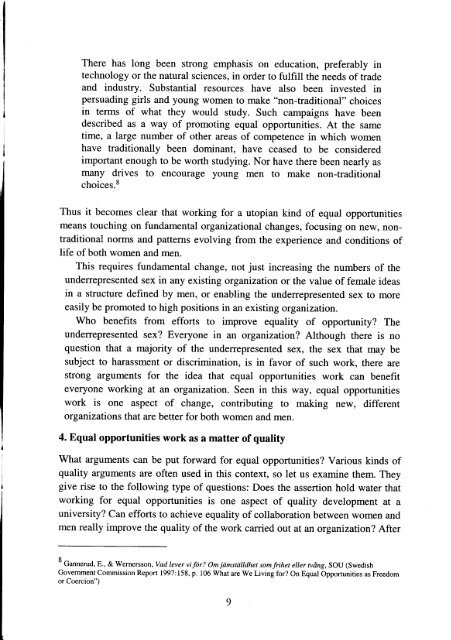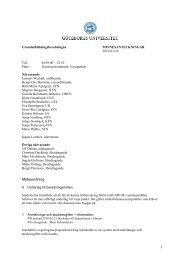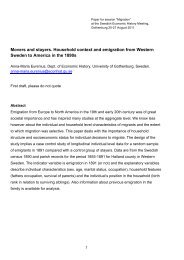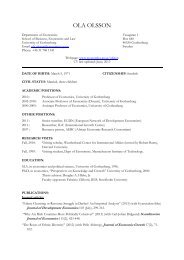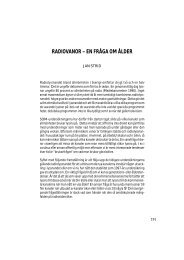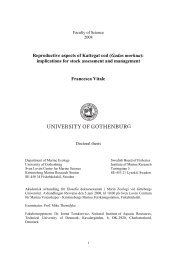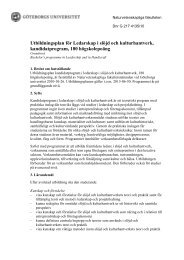Equal Opportunities Work - Theories about Practice
Equal Opportunities Work - Theories about Practice
Equal Opportunities Work - Theories about Practice
You also want an ePaper? Increase the reach of your titles
YUMPU automatically turns print PDFs into web optimized ePapers that Google loves.
There has long been strong emphasis on education, preferably in<br />
technology or the natural sciences, in order to fulfill the needs of trade<br />
and industry. Substantial resources have also been invested in<br />
persuading girls and young women to make "non-traditional" choices<br />
in terms of what they would study. such campaigns have been<br />
described as a way of promoting equal opportunities. At the same<br />
time, a large number of other areas of competence in which women<br />
have traditionally been dominant, have ceased to be considered<br />
important enough to be worth studying. Nor have there been nearly as<br />
many drives to encourage young men to make non-traditional<br />
choices.8<br />
Thus it becomes clear that working for a utopian kind of equal opportunities<br />
means touching on fundamental organizational changes, focusing on new, nontraditional<br />
norns and patterns evolving from the experience and conditions of<br />
life of both women and men.<br />
This requires fundamental change, not just increasing the numbers of the<br />
underrepresented sex in any existing organization or the value of female ideas<br />
in a structure defined by men, or enabling the underrepresented sex to more<br />
easily be promoted to high positions in an existing organization.<br />
who benefits from efforts to improve equality of opportunity? The<br />
underrepresented sex? Everyone in an organization? Although there is no<br />
question that a majority of the underrepresented sex, the sex that may be<br />
subject to harassment or discrimination, is in favor of such work, there are<br />
strong arguments for the idea that equal opportunities work can benefit<br />
everyone working at an organization. Seen in this way, equal opportunities<br />
work is one aspect of change, contributing to making new, different<br />
organizations that are better for both women and men.<br />
4. <strong>Equal</strong> opportunities work as a matter of quality<br />
What arguments can be put forward for equal opportunities? Various kinds of<br />
quality arguments are often used in this context, so let us examine them. They<br />
give rise to the following type of questions:'Does the assertion hold water that<br />
working for equal opportunities is one aspect of quality development at a<br />
university? Can efforts to achieve equality of collaboration between women and<br />
men really improve the quality of the work carried out at an organization? After<br />
8 Gunne.ud, E., & Werners son, Vad lever vi fi)r? Om jcimstciltdhet som frihet eller ndng,SOU (Swedish<br />
Government Commission Report 1997:158, p. 106 What are We Living for? On <strong>Equal</strong> <strong>Opportunities</strong> as Freedom<br />
or Coercion")


